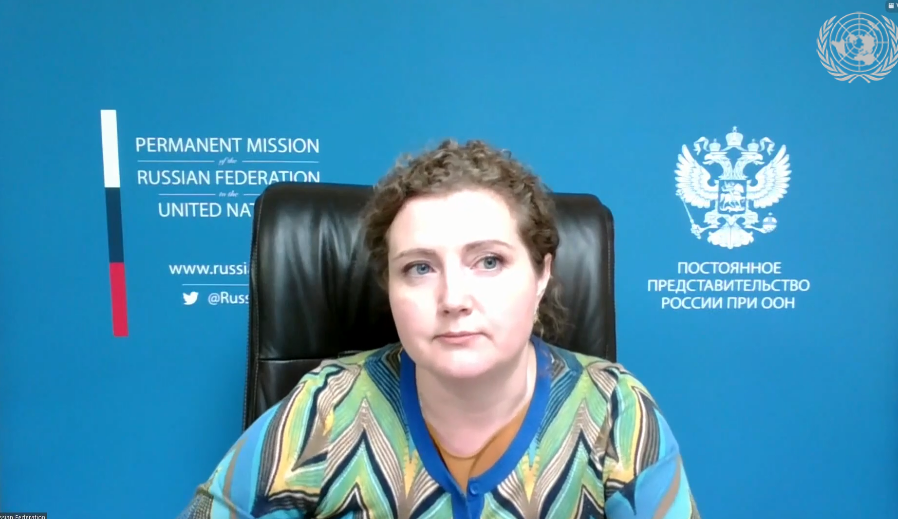Statement by Deputy Permanent Representative Anna Evstigneeva at the SC VTC Arria-Formula Meeting “Addressing the impact of the departure of foreign fighters and mercenaries from Libya on the Sahel region”
We thank the A3+1 Group comprising Kenya, Niger, Saint Vincent and the Grenadines and Tunisia for organizing this important event. We also thank our briefers from the UN and from the African Union for their inputs.
We are deeply concerned that "mercenarism" has become a reality of modern armed conflicts. On the African continent, foreign mercenary legions played a dramatic role. These groups are guided by their own mostly economic goals. But what exacerbates the situation is that their activity is paired with interests of non-regional powers, predominantly former colonial powers, which could not care less about sovereignty of states and the international law that condemns colonialism, racism and foreign domination.
The most obvious example in this context is the Libyan crisis that unfolded because of the military foreign intervention that ousted the regime in the country in 2011. It dealt a devastating blow to the regional security system and led to a large-scale penetration of weapons and criminal elements into the countries of the Sahel.
In the Sahel, we see the consequences of this intervention up until now. Only in the first part of this year, dozens of terrorist attacks killed more than a thousand people. Hundreds of thousands are displaced or acutely need humanitarian assistance. We have also witnessed the upsurge of uncontrolled migration to the Mediterranean where the criminal networks enslaved or exploited thousands of people.
From the very beginning, Security Council resolution 1970 was violated, when weapons, foreign instructors and "soldiers of fortune" flooded Libya. Russia called for a peaceful settlement of the Libyan crisis on the basis of a comprehensive and inclusive dialogue among all Libyan stakeholders. In our contacts with the Libyan parties we urge them to find common ground and a patriotic consensus.
In 2020, Russia significantly contributed to establishing a ceasefire in Libya. We still call on all Libyan parties to show restraint and respect their obligations under the Ceasefire Agreement.
At this point of time, it is particularly important to take into account interests of the neighbouring countries, including their security concerns. One of them is the problem of foreign fighters and mercenaries who are citizens from the region coming back to the countries of their origin and raiding other states due to porous borders of the Sahelian countries.
We highly value the role of African states, the African Union and sub-regional organizations, especially ECOWAS and G5 Sahel joint forces, in their efforts to find African solutions to African problems. The root causes of instability in Africa are all well-known. But despite these obstacles in recent years Africans with the support of the UN have exerted serious efforts in order to identify and address these factors with a number of mechanisms such as early warning and response, preventive diplomacy and mediation, good offices and confidence-building measures. We also take note of the African experience in the process of disarmament, demobilization and reintegration of former fighters.
The international community should support these measures. It should also take steps to strengthen national state institutions and security capacities of states with the aim to address security threats. At the same time it is important to help countries improve their socio-economic situations. This work should be based on the priorities expressed by the recipients of such assistance themselves.
I thank you.
